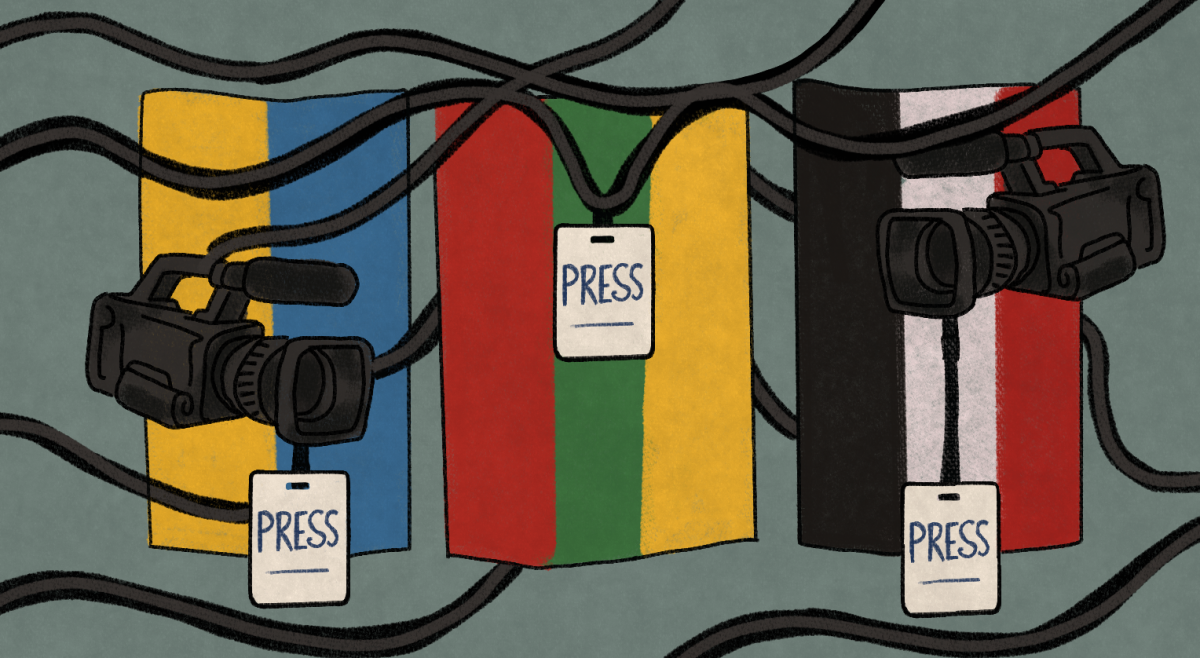Over six years ago, one of my closest friends from high school had a chance encounter with Kobe Bryant near our school in Orange County, Calif.. My friend was writing for a magazine at the time, and, unsure of how the basketball star would respond, he warily approached Kobe asking for a chance to interview him for his next piece. Kobe responded that he was in a rush taking his daughter to a tutoring session but that he would be back at the same place at the same time, in exactly one week.
Today, six years after my friend’s surprising encounter, Kobe is in his 20th season in the NBA. It will also be his last. He has been struggling so far, making only a third of all his shot attempts this season while still shooting a ton—playing at a level far below even the average NBA player. Some basketball fans using advanced metrics would tell you that this is nothing new, and that despite his superstar reputation, Kobe has always been an inefficient ballhog. Other people will tell you that his skill level allows him to play a more selfish brand of basketball. And perhaps that has been the story of his career as an NBA superstar: you either love him or you hate him. Kobe Bryant, the most polarizing athlete of our generation.
Of course, his supernatural work ethic as a professional is already the stuff of legend. There are hundreds of stories, from friends, trainers, teammates—some fabricated, many true. How he often would drive a few hours in the middle of the night off to the deserts of Southern California, pulling tires through the sand as a way to push his physical and mental fortitude to new heights. How, if he felt like he hadn’t played well in a big road game, he would hoist up hundreds of shots in an empty stadium long after the rest of the team had returned to the hotel. How there was a time when Kobe operated on a segmented sleep schedule, sleeping twice a day for only two hours each and using the rest of his day to train and spend time with his family. His relentless attitude towards basketball and the desire to win has set the bar in modern sports, inspiring athletes at all levels to dare themselves to be better—to sacrifice time, pleasure, and even sleep in the pursuit of perfection.
But with this attitude has come much criticism throughout his career. It is well known that many NBA players didn’t enjoy being on Kobe’s team because he was overly competitive, compulsively controlling, and constantly sought to be the alpha dog. Early on in his career, he was called uncoachable and stubborn, constantly alienating the rest of his team by sitting alone at team meals and flights. Kobe himself has admitted that he has been at times too intense, failing to form friendships with many teammates because he was too focused on winning every game.
“Friends come and go, but [championship] banners hang forever,” he recently said.
A sexual assault accusation from 2006 that has since been dismissed has long cast a shadow over his career and image as a celebrity. Kobe has played the villain well.
But following his announcement last week that this will be his final season, the response has been anything but polarizing. Words of gratitude and respect have poured in from fans, peers, sports legends, and other celebrities. That’s what happens when your accolades include scoring 81 points in one game, having 17 All Star Team selections, five NBA Championships, two Olympic Gold Medals with Team USA, and being a Slam Dunk Contest Champion. No one can dispute that his accomplishments and records are remarkable.
We’re left with an image of a complex character, a celebrated, mysterious, almost mystical superstar that has legions of both fans and critics worldwide. Yes, he deserves respect for what he’s done. But is he more hero? More villain?
Six years ago, after talking to my friend, Kobe flew to New York to host a televised basketball clinic for inner city kids. A week after initially seeing him, my friend had waited at the same spot, hanging on to the slight thread of hope that Kobe had remembered his promise to return for the interview. And right as he was beginning to lose faith, Kobe showed up directly from the airport—a little late, a little disheveled, but ready for an interview with a high school kid he’d just met. Attentive and friendly throughout, he finished the interview and took some photos with my friend before asking if there was anything else he could do. They fist bumped, and he was gone.
To me, Kobe’s a hero. Has he had an incredible career as a basketball player? Yes. Have there been times when he’s pushed people away? Come off as an egotistical maniac to the public? Yes. But he has been there, unwavering, for his team and city for 20 years. He’s been there during championships, been there during tough years when the Lakers suck , like this year. He’s been there answering questions from high schoolers, been there politely taking photos with me every time I see him at Starbucks. These little things remind me that for all his otherworldly accomplishments and inhuman habits, Kobe Bryant is very much human. If nothing else, Kobe Bryant has been loyal. And as a fan of the game, what more can you ask for?
Featured Image by The Associated Press












